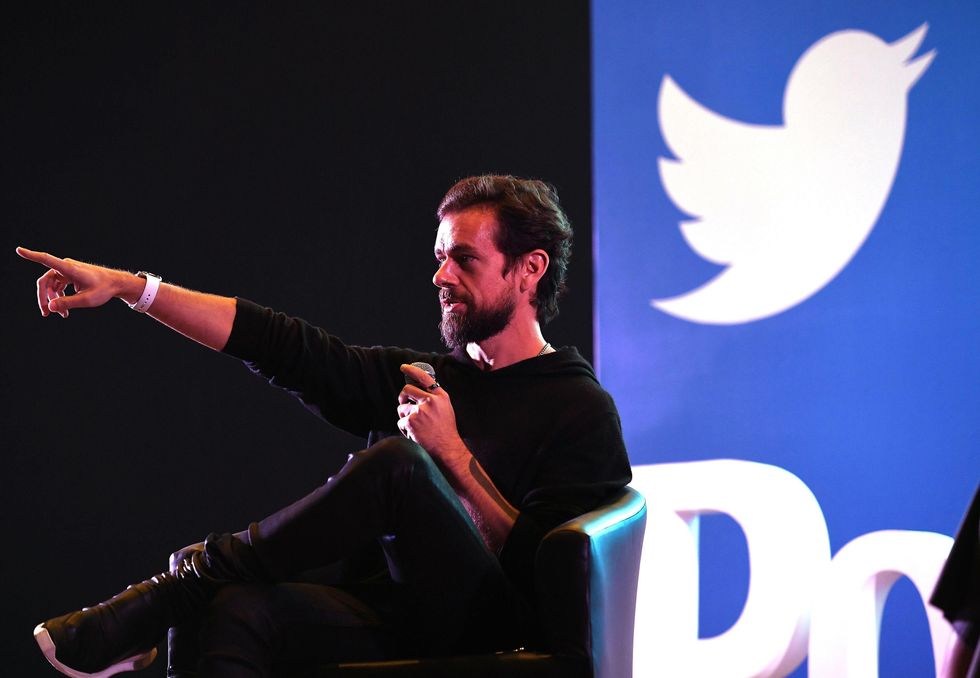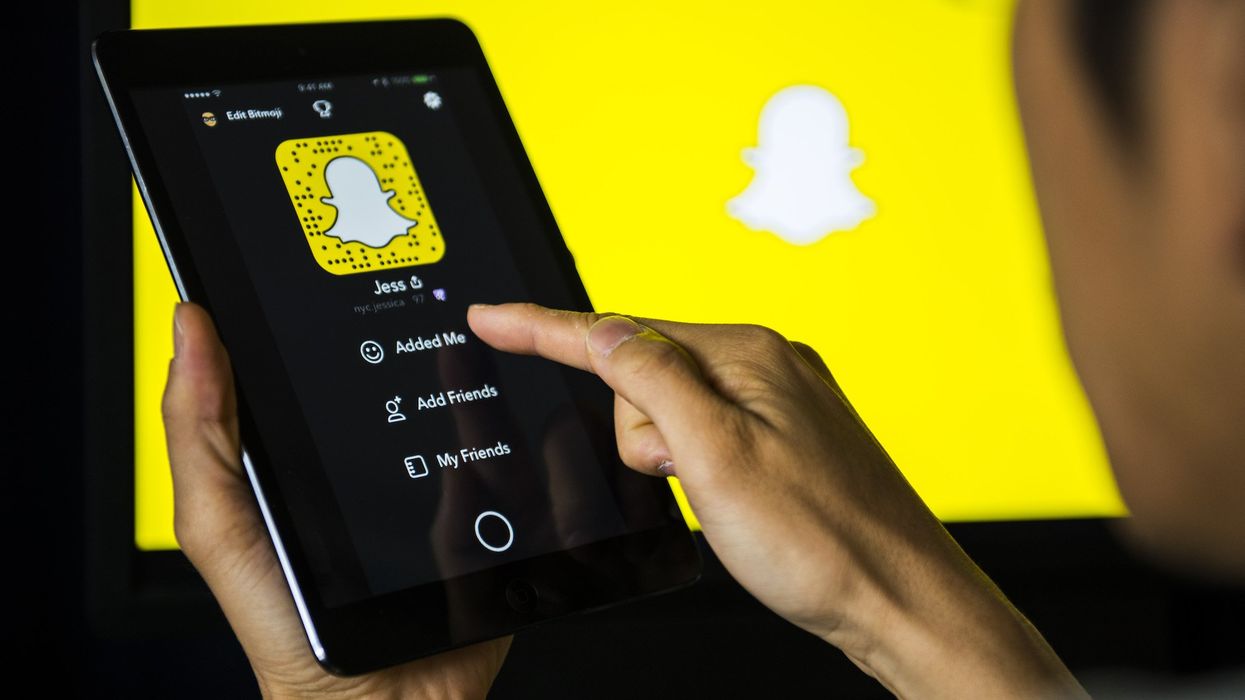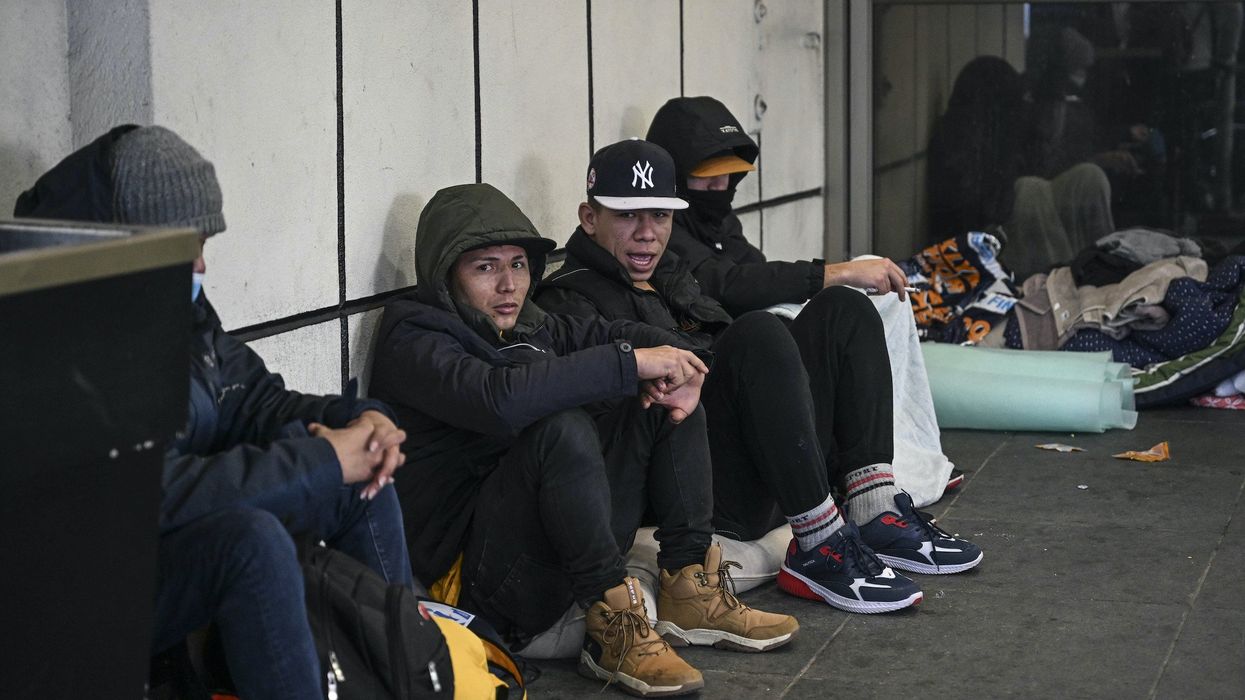
Twitter CEO and co-founder Jack Dorsey interacts with students on Nov. 12 at the Indian Institute of Technology in New Delhi. Dorsey hosted a town hall meeting with university students on his visit to the Indian capital New Delhi. (Photo by Prakash SINGH / AFP)



